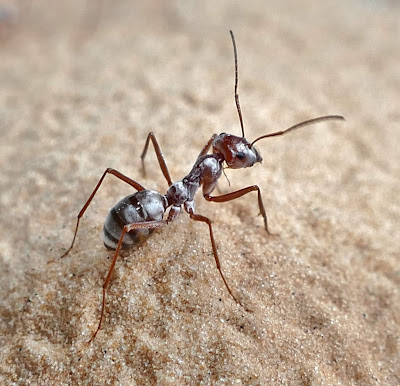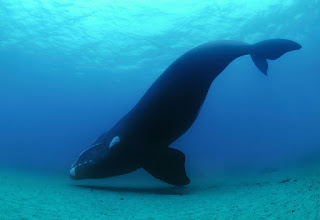Scotch Broom (Cytisus scoparius) ~ Why doesn’t God take away evil things?
“The kingdom of Heaven may be compared to a man who sowed good seed in his field, but while his men were sleeping, his enemy came and sowed weeds among the wheat and went away.” —Matthew 13v24-25
I recently read a paper about weed control in New Zealand. This tells you a lot about how exciting my social life is…but it also tells you about my appreciation for journal access and my love of keeping up with current biological literature. In the paper, the authors seek to once and for all determine the sure-fire way to control New Zealand’s most invasive weed—the dreaded Scotch Broom. Biologists set up five different plots in the broomiest tangle of the Canterbury Plains. This was their method:
Plot #1: Shave the woody weeds down into mulch, so that the native species can savor their victory by gaining nutrition from their would-be foes.
Plot #2: Tear the weeds up by the roots, leaving not a shred to remind us of their hateful existence.
Plot #3: Hulk Smash! Crush them flatter than a pancake and see how they like it.
Plot #4: Poison them with chemicals and hope that good things come up in the same spot later.
Plot #5: Leave it alone for good measure (a.k.a. the ‘control plot’)1
In each plot were planted a cocktail of native seedlings, then the researchers went away to let nature take its course. Later, the biologists came back to see how their plots were faring. This is what they found:
The main thing to notice here is that one of those lines is a good deal bigger than the others, and it was the last line the authors ever expected to draw. They explain:
“Significantly higher germination and survival rates of indigenous woody species under the living broom canopy indicated that the facilitative effects of the living canopy outweighed any negative effects. With no evidence of unassisted regeneration of indigenous plants from local sources during our experiment, our results suggest that retaining a live broom canopy was most beneficial for the germination and establishment of planted indigenous woody seedlings at this site.”2 (emphasis mine)
Amazingly, the native plants thrived in the ‘control’ plot and died in all the plots where the researchers had tried to solve the problem. As it turns out, Scotch Broom has been acting as a nurse plant in these ecosystems. Nurse plants are organisms that serve to protect smaller plants so they can establish and mature. Thus, even though they have been viewed as harmful by conservationists, leaving the weeds in the ground and letting native plants grow in around them is truly the best option.
After reading this paper, I reflected on all the things I’ve been asking God to ‘root out’. As I look around the world, I sometimes feel overwhelmed and overshadowed by the presence of evil. It feels like evil is growing, because it is. But the Kingdom of God is also growing.
Persisting brokenness that is a hallmark of reality. Clarity to see this brokenness can be painful because looking around our world through a pair of 20/20 lenses reveals the rising tide of corruption. In every sphere it is growing; its roots go deep into the bed of politics, the soils of economies, and even into the justice systems that claim to be our moral bedrock. Thus, the question arises in many hearts: “If God is good, if God is powerful, and if God sees all, why doesn’t He just take all this evil away right now?”
We have the answer from the lips of Jesus Himself. In Matthew 13, He tells the parable of a man who sowed good seed in his field. In the night, an enemy came and sowed weeds in the same plot. When the plants grew up, the workers saw that the crop was mixed with something terrible. They asked the master of the house if they should pull the weeds up so that the wheat could grow unobstructed. The master’s answer tells us everything:
“No, lest in gathering the weeds you root up the wheat along with them. Let both grow together until the harvest, and at harvest time I will tell the reapers, Gather the weeds first, and bind them in bundles to be burned, but gather the wheat into my barn.” (v29-30).
Why doesn’t God rip out the evil all around us? Because WE are evil. If only the evil were confined to outside of us! But it’s not; it dwells even in our own hearts. It’s easy to see evil ‘out there’, but difficult to recognize it ‘in here’. The harrowing fact is that deep down at the roots, there’s entanglement. A gruesome involvement has taken place at the most basic level. If God were to go in and rip out all the evil things in this world, we’d come up too. Just as the biologists discovered that the Scotch Broom had to remain for the native species to flourish, God has allowed evil to exist so that we could also. Thus, the persistence of evil all around does not denote a careless God, but a deliberate one. As the apostle Paul muses,
“What if God, desiring to show his wrath and to make known his power, has endured with much patience vessels of wrath prepared for destruction, in order to make known the riches of his glory for vessels of mercy, which he has prepared beforehand for glory—even us whom he has called?” (Romans 9v22-24)
So, He waits, and so do we.
In the waiting, there is hope. Just as real as the evil around us is the promise of its destruction, when He will “gather out of his kingdom all causes of sin.” (v41) One day God will restore us to become again what human beings were meant to be from the creation of the world, to what we were before the invasive species of sin took over in our hearts. It will be an eradication so complete, so thorough, that all of heaven and earth will be renewed. So, let us wait, with joyful expectation, knowing that the master of the field has already built the barn into which you and I will be brought. In that day He will gather us to Himself, “then the righteous will shine like the sun.” (v43)
1. Burrows, L., Cieraad, E., & Head, N. (November 21, 2014). Scotch broom facilitates indigenous tree and shrub germination and establishment in dryland New Zealand. New Zealand Journal of Ecology, 39, 1, 61-70.
2. ibid





Comments